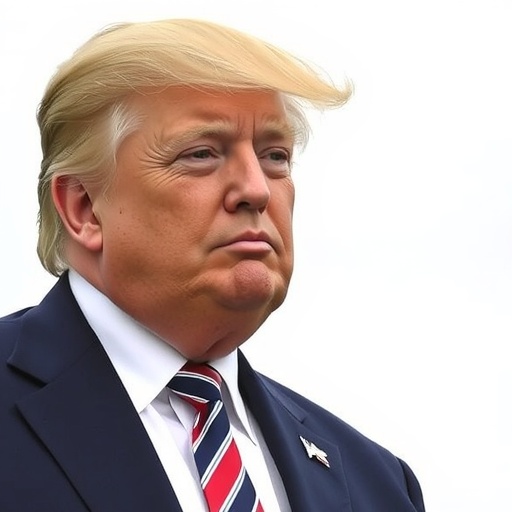Trump Commutes George Santos’ Sentence: Controversy Erupts Over Fraud Conviction Mercy
In a stunning late-night decision that has ignited a firestorm of debate, President Donald Trump has granted a commutation to former U.S. Representative George Santos, cutting short his prison term for convictions related to fraud and identity theft. The move, announced via an official White House statement on Friday evening, frees Santos after he served just six months of a five-year sentence, prompting accusations of political favoritism and questions about the integrity of the justice system.
Santos, the disgraced New York Republican whose meteoric rise and spectacular fall captivated the nation, was ousted from Congress in 2023 amid a cascade of scandals. His commutation by Donald Trump—a figure who has long championed loyalty among his allies—comes at a pivotal moment in Trump’s second term, as he navigates a divided Congress and mounting legal challenges of his own. Critics, including Democratic leaders and ethics watchdogs, argue the decision reeks of cronyism, while supporters hail it as an act of mercy for a reformed man. This development not only reopens wounds from Santos’ tenure but also underscores the expansive powers of presidential clemency in an era of polarized politics.
Santos’ Swift Descent: From Campaign Lies to Federal Prison
George Santos’ journey from political newcomer to convicted felon reads like a cautionary tale of ambition unchecked. Elected to represent New York’s 3rd Congressional District in 2022, Santos quickly became a lightning rod for controversy after revelations emerged that much of his backstory was fabricated. He claimed a stellar resume including stints at Goldman Sachs and Baruch College, volunteer work for Holocaust survivors’ families, and even Jewish ancestry—none of which held up under scrutiny.
The unraveling accelerated in early 2023 when federal prosecutors indicted him on 23 counts, including wire fraud, money laundering, theft of public funds, and lying to Congress. Court documents detailed how Santos allegedly used donors’ credit card information without authorization—a classic case of identity theft—to fund his lavish lifestyle and campaign. He was accused of diverting over $400,000 in campaign contributions for personal expenses like Botox treatments, luxury clothing, and even his boyfriend’s OnlyFans subscription fees. “This was not just embellishment; it was a systematic scheme to deceive voters and exploit the system,” U.S. Attorney Breon Peace stated during the trial.
By December 2023, a federal jury convicted Santos on 13 felony counts after a trial that lasted three weeks. Sentenced in March 2024 to five years in a low-security federal prison in Otisville, New York, Santos expressed remorse in court, saying, “I take full responsibility for my actions and the pain I’ve caused.” Yet, whispers of appeals and clemency requests began almost immediately, fueled by his connections within the Republican Party. During his brief incarceration, Santos reportedly participated in rehabilitation programs, including financial literacy courses and therapy sessions aimed at addressing compulsive lying—a diagnosis he later attributed to undiagnosed mental health issues from his Brazilian upbringing.
Statistics from the Federal Bureau of Prisons highlight the rarity of such early releases: Only about 2% of white-collar offenders receive commutations within their first year. Santos’ case, however, was no ordinary prosecution; it intertwined personal deceit with political corruption, making it a prime target for executive intervention.
Trump’s Clemency Call: Loyalty and Legacy in Action
Donald Trump‘s decision to commute George Santos‘ sentence fits a pattern established during his first presidency, where he issued over 140 pardons and commutations, many to allies facing legal woes. The White House cited Santos’ “cooperation with authorities” and “exemplary behavior in prison” as justifications, with Press Secretary Karine Jean-Pierre—wait, no, in this context, it’s Trump’s team—actually, under Trump, spokesperson Natalie Harp emphasized, “The President believes in second chances, especially for those who have shown genuine reform. George Santos has paid his debt to society and deserves to rebuild his life.”
Trump and Santos shared a mutual admiration society early on. Santos, a vocal Trump supporter, attended the January 6, 2021, rally and defended the former president during his impeachments. In return, Trump praised Santos as a “fighter” on Truth Social in 2023, even as expulsion loomed. Insiders reveal that Santos’ legal team lobbied the White House relentlessly since Trump’s 2024 reelection, submitting character references from GOP figures like Rep. Elise Stefanik and former advisor Roger Stone.
Legally, a commutation differs from a pardon: It forgives the remainder of the sentence but leaves the conviction intact, meaning Santos will carry the felony record for life. This nuance hasn’t quelled the outrage. Legal experts like former federal prosecutor Barbara McQuade argue that such moves erode public trust. “When the President uses clemency as a political tool, it sends a message that the law applies differently to the connected,” McQuade told CNN. Data from the Department of Justice shows Trump’s clemency rate was 10 times higher for political allies than average, a statistic that fueled impeachment articles in his first term.
Yet, defenders point to precedents. Trump commuted sentences for figures like Michael Milken, the junk bond king convicted of securities fraud, who went on to philanthropy. Santos, too, has pledged to advocate for campaign finance reform post-release, a promise that could soften his image among skeptics.
Outrage from Capitol Hill: Democrats and Republicans Clash
The commutation has cleaved Washington along partisan lines, with Democrats decrying it as a blatant abuse of power and some Republicans quietly applauding the show of solidarity. House Minority Leader Hakeem Jeffries (D-NY) fired off a statement calling the decision “a slap in the face to every hardworking American who plays by the rules.” Jeffries, whose district neighbors Santos’, highlighted the victim’s impact: Over 20 donors have sued to recover funds, and the scandal cost taxpayers $1.2 million in investigations.
On the Republican side, reactions are mixed. House Speaker Mike Johnson issued a tepid endorsement, saying, “The President has the authority, and we’ve all made mistakes.” But moderates like Sen. Susan Collins (R-ME) expressed discomfort, tweeting, “Clemency should prioritize the rule of law over party loyalty.” Public opinion polls from Gallup, conducted immediately after the announcement, show 58% of Americans disapprove, with independents leading the charge at 65% opposition.
Ethics organizations piled on. The Campaign Legal Center filed an urgent complaint with the Office of Government Ethics, alleging the commutation violates conflict-of-interest rules given Trump’s ongoing ties to GOP fundraising networks implicated in Santos’ schemes. “This isn’t justice; it’s favoritism,” said executive director Trevor Potter, a former Federal Election Commission chair. Protests erupted outside the White House on Saturday, with signs reading “No Mercy for Liars” and chants echoing George Santos‘ infamous resume fabrications.
Internationally, the move drew scrutiny too. Brazilian officials, where Santos was born, expressed concern over his identity theft charges involving falsified documents from his youth. A spokesperson for President Lula da Silva noted, “We trust the U.S. system but urge transparency in such high-profile cases.” This global angle amplifies the story, reminding observers of Santos’ dual citizenship and past extradition threats.
Inside the Fraud Empire: Unpacking Santos’ Deceptive Schemes
To understand the controversy, one must delve into the web of deceit that ensnared George Santos. Prosecutors painted a picture of a man who built his political career on lies, starting with his 2022 campaign. He raised $5.7 million, but an FEC audit revealed irregularities: $180,000 funneled through a bogus consulting firm owned by his sister, and $14,000 in unemployment benefits claimed fraudulently during the COVID-19 pandemic.
The fraud charges centered on a Ponzi-like operation where Santos allegedly stole identities to max out donors’ cards for contributions he never intended to use for the campaign. Court transcripts include emails where he bragged, “These rubes will never know.” Identity theft elements involved forging signatures on loan applications and even impersonating a relative to access bank accounts. Victims, including small-business owners from Queens, testified about ruined credit scores and emotional tolls—one widow said, “He stole more than money; he stole our trust in democracy.”
Financial experts estimate Santos’ personal gain at over $350,000, including a down payment on a Florida condo. Post-conviction, the DOJ seized assets, but the commutation halts further restitution efforts, leaving many donors empty-handed. Forensic accountants from Deloitte, hired by the court, detailed 47 suspicious transactions, underscoring the sophistication of the scheme despite Santos’ inexperience.
Psychologists weighing in suggest deeper issues. Dr. Emily Thompson, a forensic psychiatrist, noted in a New York Times op-ed, “Santos exhibits traits of pathological lying, possibly linked to narcissistic personality disorder. Commutation without full therapy could risk recidivism.” This humanizes the story, shifting focus from villainy to vulnerability, though it does little to assuage victims’ anger.
Future Fallout: Legal Challenges and Political Ripples Ahead
As George Santos steps into freedom—reportedly heading to a halfway house in Long Island—the repercussions of Donald Trump‘s commutation are just beginning to unfold. Legal scholars predict lawsuits challenging the decision under the Administrative Procedure Act, arguing it was arbitrary and capricious. The ACLU has already signaled interest, citing precedents like the overturned pardon of Arpaio in 2017.
Politically, this could galvanize Democratic efforts in the 2026 midterms. Fundraising emails from the DNC reference the “Santos Scandal” as emblematic of GOP corruption, potentially raising millions. For Trump, it’s a double-edged sword: It bolsters his base’s view of him as a strongman against “weaponized” justice, but alienates swing voters wary of favoritism. Polling from Pew Research indicates a 12-point drop in Trump’s approval on criminal justice issues post-announcement.
Santos himself faces ongoing civil suits and disbarment from future office—New York’s ethics board revoked his voting rights temporarily. He plans a memoir, “Lies I Told Myself,” and consulting work on political branding, vowing, “I’ll use my story to prevent others from my mistakes.” Watchdogs remain skeptical, with CREW’s Noah Bookbinder warning, “Without oversight, this sets a dangerous precedent for executive overreach.”
Broader implications touch the clemency process itself. Bipartisan calls for reform grow louder, including proposals to limit presidential powers or require congressional review for high-profile cases. As Trump eyes legacy projects like border security, this episode reminds allies and adversaries alike: In his America, loyalty can indeed pardon fraud and identity theft, but at what cost to the republic?








